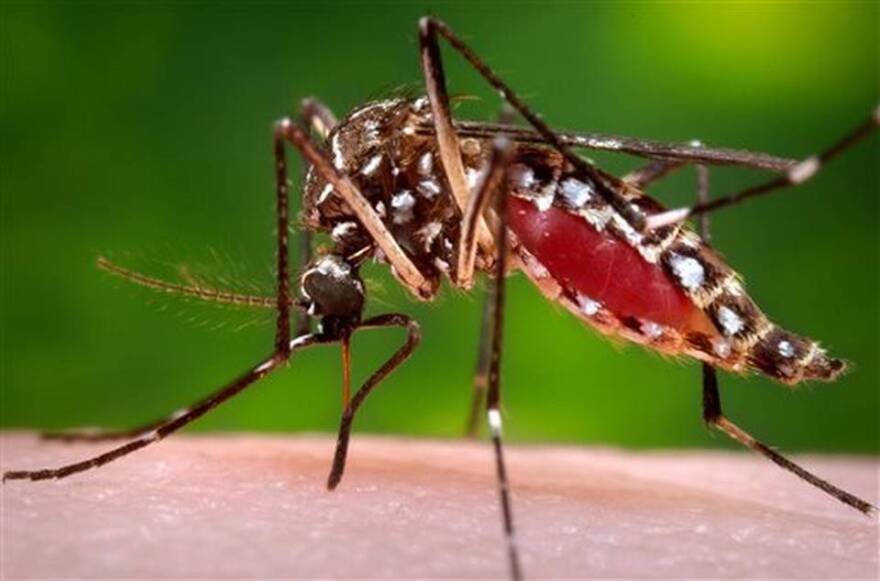COMMENTARY
In response to Latin America’s sudden outbreak of Zika – the insect-borne virus tied to a serious fetal brain defect – some of the region’s countries are telling women to shun pregnancy for months if not years.
We can debate whether that strategy is appropriate. Rights groups, for example, have a point when they say it puts an unfair if not unrealistic onus on women when the focus should be eradicating mosquitoes.
But one thing’s certain: If Latin American governments want the no-pregnancy policy to work, they better start paying attention for once to the birth control needs of the region’s teenage girls.
That’s because Latin America today rivals Africa for the world’s highest teen pregnancy rate. In fact, according to the United Nations, it leads the world in the share of total births involving teen mothers.
RELATED: Zika Virus May Be Responsible For Shrinking Babies' Heads In Brazil
And that’s especially true of the countries that have so far hopped on the anti-pregnancy bandwagon: Colombia, Ecuador, Jamaica, Panama and El Salvador.
In Ecuador, 100 of every 1,000 adolescent females get pregnant, tops in South America. In El Salvador – which has gone so far as to urge women not to conceive for the next two years – teen mothers account for a third of all pregnancies.
In Brazil, more than 4,000 pregnant women are believed to be infected with Zika – which many doctors believe is linked to microcephaly, a condition that abnormally reduces the size of a fetus’ brain and head – and many of them are adolescents. NPR’s Lourdes Garcia-Navarro interviewed an infected 16-year-old this week.
If Latin American governments want the no-pregnancy policy to work, they better start paying attention for once to the region’s teenage girls.
What makes Latin America’s teen pregnancy burden particularly distressing is that the fertility rate for adult women has actually dropped in recent years. It’s down to about 2.5 kids per mom – nearing the 2.1 figure we’ve so long boasted in the United States.
That’s partly because contraceptive use, which forces like Latin America’s Roman Catholic Church all but blocked in the 20th century, has risen in the 21st. Less than half the region’s sexually active adults used birth control 15 years ago; today almost two-thirds do.
That doesn’t mean Latin America is suddenly a family planning model, though. Access to condoms and the pill remains a daunting challenge, especially for the poor and the young. As a result, women still report that half of all pregnancies there are unintended.
All of which makes government calls to postpone pregnancy sound remarkably clueless – particularly when it comes to teenage girls, who've been left out of Latin America’s birth control loop more egregiously than perhaps any other group, reproductive health organizations like PAI in Washington D.C. tell me.
DRACONIAN LAWS
Lax statutory rape laws and enforcement add to the problem. And so do the region's restrictive abortion laws: Five of the seven countries in the world that ban abortion outright – even in cases of rape, incest and danger to the mother’s life – are in Latin America.
El Salvador has arguably the world’s most draconian statute, evidenced by the scores of women convicted for having abortions who are now serving sentences as long as 40 years.
About 100 pregnant women are afflicted with Zika in El Salvador. But if you think none of them could ever be thrown behind bars for having an abortion because of fetal microcephaly then you haven’t been watching how maniacally that small, benighted country enforces its abortion law. And I have interviewed Salvadoran women who were arrested under that law when they were terrified teens.

The whole scenario is so dark and dysfunctional even the Salvadoran church is stuttering. The nation’s Catholic hierarchy has yet to render a statement on the government’s pregnancy-postponement appeal – even though it seems to encourage birth control methods the church firmly opposes.
That bemuses Salvadoran birth control advocates like Maria Hernández of the Rosa Andrade Midwives Association.
“We’re trying to figure out why the church might accept birth control to prevent Zika when, for example, it opposed it even in our efforts to reduce HIV and AIDS,” Hernández told me by phone this week. She was referring to the church’s role in pushing through a Salvadoran law, no longer in effect, that once required all condoms to carry a warning (a lie, actually) that they don’t protect you from HIV infection.
Hernández’s question is a good one. But here’s a more important one: If Latin America wants to reduce Pregnancy in the Time of Zika, what will it do to reduce pregnancy among teens – the mothers least equipped to handle what Zika might do to their babies?






